
Editor’s Note: John Fisch is an avid backcountry enthusiast who hikes, bikes and backpacks at every opportunity. While John is a regular contributor to Singletracks.com, the opinions expressed in this commentary are his alone and do not necessarily represent the opinions of Singletracks.com.
The recent introduction of the Human-Powered Travel in Wilderness Areas Act into Congress has unsurprisingly brought the debate over the idea of allowing mountain biking in federally designated Wilderness to a new level of intensity. In addition to arguments against the concept itself, many have redoubled their arguments specifically against the proposed legislation. Some who oppose the bill claim to have no problem with allowing cycling in Wilderness areas, but that this particular bill is not the way to go about allowing that goal. Having already dispensed with the basic arguments against mountain biking in Wilderness here, in this piece, I will address the key arguments being made specifically against the proposed legislation.
1. We Shouldn’t Amend the Wilderness Act
While the title of the new legislation may give the impression that it is changing the Wilderness Act, it is not. The proposed legislation would allow local land managers, the ones with actual boots on the ground in the areas in question, to determine appropriate non-motorized uses on a case-by-case basis. This simply returns the administration of the Wilderness Act to the way it was for the first two decades of its existence, before the USFS put the blanket ban on bicycles into place. The original Act wasn’t amended or “changed” in any way when bikes went from being allowed to being banned; reversing this decision would similarly not alter the original act.
2. The New Legislation Is Sponsored by Senators with Poor Records on the Environment
That statement is absolutely true… and utterly irrelevant. It is a classic example of the logical fallacy known as an Ad Hominem attack. According to Mirriam-Webster, ad hominem is “marked by or being an attack on an opponent’s character rather than by an answer to the contentions made.”
That’s exactly what is taking place here.
That ad hominem attack says absolutely nothing about the actual content of the proposed legislation. Whatever the records of the bill’s sponsors, Senators Hatch and Lee (both from Utah) may be, there is no verbiage in the proposed legislation which could be construed as a weakening of environmental protection or a hook for future development or transfer of public lands to private interests. I encourage anyone who is concerned about this to read the bill itself, here.
The argument is that this legislation must be some gateway to a larger, nefarious plot by its evil sponsors. I understand the concern about such things, but again, the wording of the bill has no such hooks whatsoever. To see the ultimate hypocrisy of this particular argument, look at the disconnect between today’s position and a past position. According to the League of Conservation Voters Scorecard, Senator Hatch’s record for favorable votes on the environment is 0% in 2015 and 10% lifetime, while Senator Lee’s record is 4% in 2015 and a similar 10% lifetime. Now consider the records of Idaho Representative Simpson and Senator Risch, who have records of 3% in 2015 / 7% life time and 0% in 2015 / 7% lifetime. From an environmental standpoint, these records are as bad or worse than Hatch and Lee’s.
Why is this relevant? Because Risch and Lee sponsored the legislation that led to the creation of new Wilderness in Idaho’s Boulder White Clouds (which incidentally removed mountain biking from dozens of miles of traditionally ridden, Grade A trails). Each and every one of the so-called environmentalists and environmental proponents who are now denouncing the current legislation based on the environmental records of its sponsors were 100% behind the legislation that created new Wilderness in Idaho.
Also consider the benefits of having all backcountry-loving constituencies united and highly motivated to meet any threat to our wild places. How does alienating backcounty cyclists, who share the same basic conservation ethos as backcountry hikers, further that cause? If the prime concern is the preservation and defense of our wild places, how does favoring one low-impact user group over another bring us together to pursue this worthy goal? Wouldn’t we want all possible constituencies to be at the highest possible motivation to meet such a threat? It seems self-evident that mountain bikers actually being able to enjoy their equally low-impact, human-powered form of travel in the lands in question would generate the greatest possible motivation to protect those lands from development. This looks suspiciously like anti-bike forces being more concerned with protecting their elite status in the backcountry than actually protecting the backcountry itself.

3. The Legislation Is Too Aggressive
The key complaint here is the verbiage in the bill, which give the USFS two years to assess their trails and make their recommendations and regulations as to which trails would and wouldn’t allow each form of non-motorized travel. After the two years is up, anything not already specifically closed to bicycles would then be open to mountain biking. The concern is that this provision shouldn’t be there at all, or that if it must be in there, that two years is not long enough; since the USFS already has its plate full and is poorly funded, there is no way they could be expected to inventory all their trails and assess them for mountain biking suitability.
The good news is that the USFS wouldn’t have to assess all their trails, just those in Wilderness areas. Moreover, they wouldn’t have to assess them from scratch. The USFS is constantly monitoring its trails and must periodically publish travel plans and/or management plans for all its holdings, so there’s nothing out there they haven’t already seen and aren’t familiar with. Simply adding a biking component to familiar trails in a relatively small corner of their overall portfolio is a small task in the big scheme.
Here’s the reason why this particular provision is absolutely necessary. Without some teeth in the bill, inertia and resistance will certainly lead to few–if any–trail openings, thus defying the intent of the bill itself. There must be some sort of forcing function, or the status quo could stand indefinitely. I have no fear the USFS won’t be able to close trails that should be closed within the allotted time frame. After all, they have been highly successful closing many trails even outside Wilderness areas in recent years, with no forcing function. There’s no reason to believe they can’t do the same inside Wilderness areas subsequent to passage of this legislation.

4. This Legislation Antagonizes Fellow Environmentalists.
Of course it does. As the largest, best-funded, and most powerful lobby, The Sierra Club, The Wilderness Society, and other anti-bike organizations have had the dominant hand in all such political battles ever since they decided mountain biking was a “threat” and had to be kept out of their lands. With the largest name cycling organization, IMBA, being less than effectual in countering them (ex. the Boulder White Clouds), they have become accustomed to an easily-controlled adversary. They throw cyclists a weak little frontcountry bone once in a while, so long as cyclists are willing to stay in their place–which is not the backcountry. With the Sustainable Trails Coalition’s push for this legislation, and it’s actual introduction into Congressional committee, this is the first time a cycling organization has gained enough momentum to really make some noise about the unfair state of trail access.
IMBA’s former Public Lands Initiative Director, Ashley Korenblat, blogged, “We learned a long time ago that working with the environmental community to support the public land system is how to open trails. It is a shame that the narrow sighted view of a few riders who openly admit they only care about their own access, is burning bridges and jeopardizing the great work of mountain bike advocates across the country.”
In response:
a. So this “working with the environmental community” has opened some new trails. It has led to the closure of many more, and those being of far greater interest to backcountry cyclists.
b. I see nothing narrow sighted about wanting to improve access for a low-impact, human-powered user group.
c. To call this movement the result of a “few riders who openly admit they only care about their own access, ” is a blatant misrepresentation. The movement is large and growing, and it’s about fair access for all. What a strange thing to say when you align yourself with a group (hikers) who has 100% access against a group which is allowed access to as little as 15-45% of backcountry areas, depending on the state.
d. This effort is hardly “burning bridges.” What bridges are left to burn? Bridges were burned when a multi-constituency agreement was in place to preserve the Boulder White Clouds as a National Monument, which would have had the option to continue to allow mountain biking, only to be replaced by an eleventh hour back room deal to make it a Wilderness. Bridges were burned when anti-biking forces petitioned a federal judge to ban bikes from Recommended Wilderness Areas and Wilderness Study Areas, in effect creating de facto Wilderness without consent of Congress.
e. I’m dubious about “jeopardizing the great work of mountain bike advocates across the country.” In the last few years alone, mountain bikers have lost access to over a thousand miles of outstanding backcountry trails. A new neighborhood pumptrack or a frontcountry loop, or even the creation of a new network like Klonzo in Moab, is no substitute for what has been lost. With advocates like that, who needs adversaries?

5. Miscellaneous Lesser Arguments
The first four are the biggies, but a number of smaller arguments are trotted out as well. Some are concerned about the “slippery slope,” that this may lead to motorized vehicles or other things we all agree are not Wilderness-like. Again, the wording of the legislation is there for all to see.
Some are concerned about its allowance for the use of chainsaws for trail work. To be honest, I share that reservation myself, and there are good arguments both for and against.
With regard to all the nits one could pick, that could be said of any legislation. Even the original Wilderness Act itself was a tough sell, and you’d be hard-pressed to find any constituency who thought it was perfect. The key is to look at things on balance. Taken in total, the Human-Powered Travel in Wilderness Areas Act is a huge improvement on the status quo.












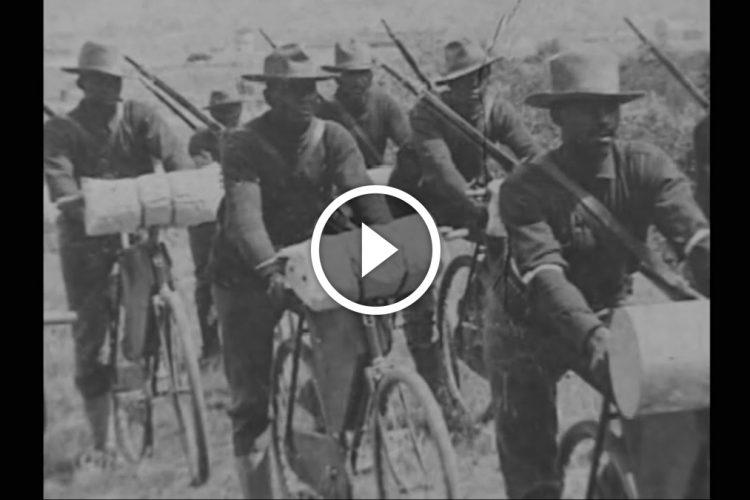
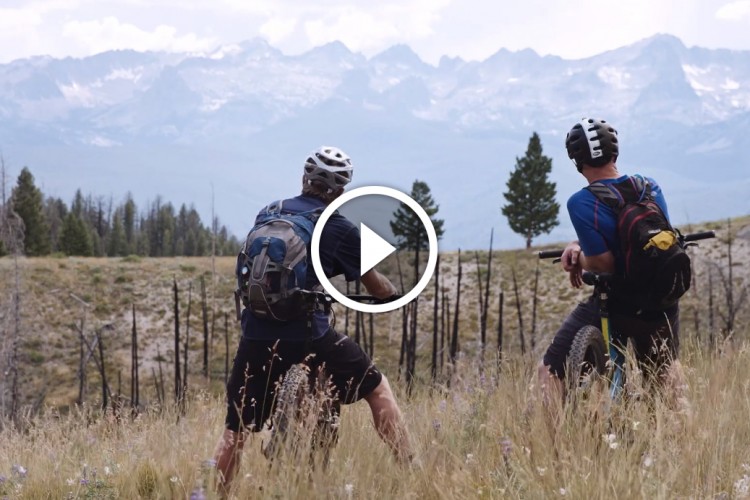
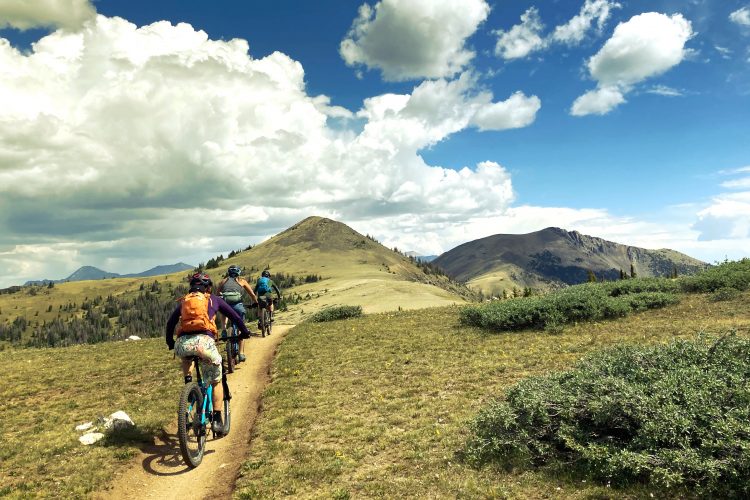
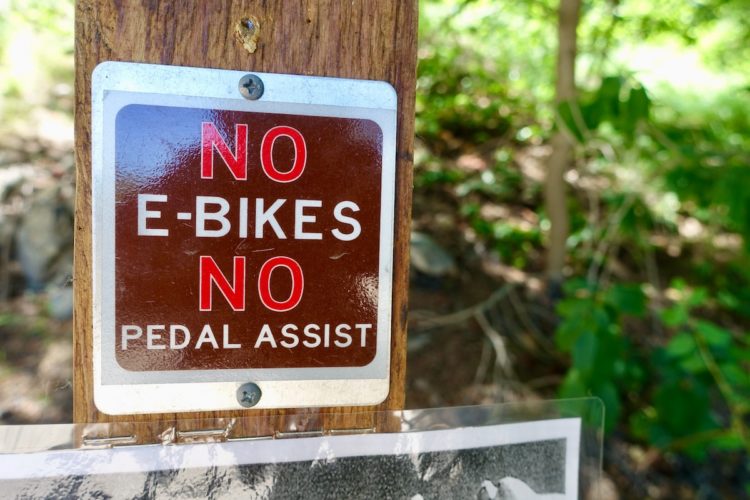

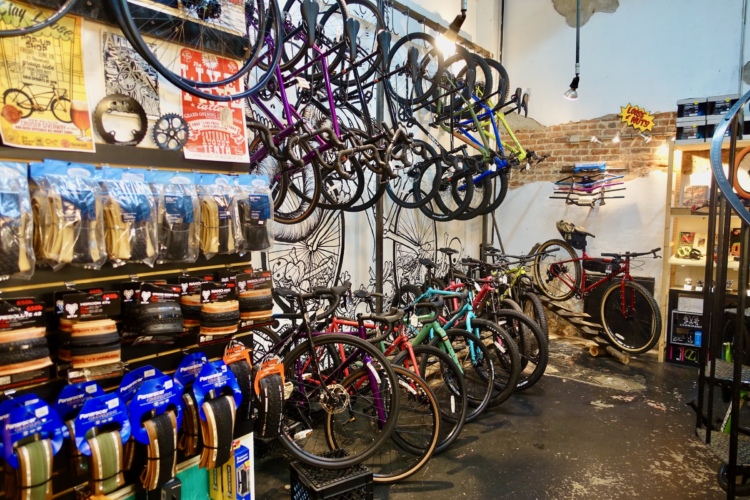

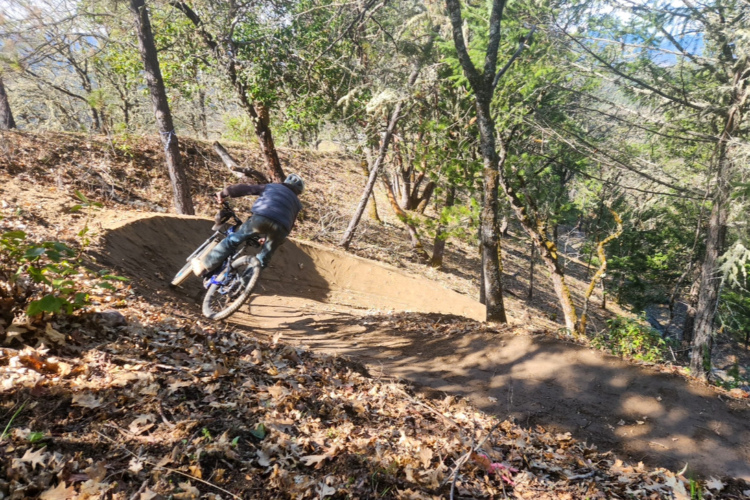

17 Comments
Aug 10, 2016
In regards to policy makers... I don't believe any of them are altruistic. So attacking one for this or that decision or political bend is diversionary. It only obfuscates the main issue - and a person's previous voting history doesn't change the content of the bill or spirit of the issue.
Either way its sliced, bicycles got the short end of the stick, and have been treated unjustly in regards to wilderness access. I don't know what it will take to gain fair, just, equal treatment, but this seems to be a good start.
Enjoyed reading the points, great food for thought. Thanks!
Aug 10, 2016
John has written two very well thought out articles, although I wouldn't say he "dispensed" with the basic arguments against as much as voiced his own opinions.
With regards to point 2, it is COMPLETELY relevant "ad hominem" or not, these policy makers utterly fail with regards to intelligent environmental protection. History don't lie.
I don't completely disagree with John, I would love to see more areas open as long as it is done in an intelligent and environmentally sensitive manner. Those "boots on the ground" don't always have "our" best interest at heart.
Aug 11, 2016
Aug 10, 2016
Aug 10, 2016
I've seen much more trash and trail damage from hikers in my area than bikers (all within the first 2 miles of trails). I could easily say what you have, that hikers don't belong in Wilderness areas. But this is my subjective experience with hikers.
Just acknowledge the rules are currently subjective and don't pretend people on bikes are excluded for some objective reason.
Aug 10, 2016
Aug 10, 2016
Aug 10, 2016
Feb 16, 2017
Now that our new administration has taken over, and there's a whole slew of bills out to sell off public lands- I can't help be a wee-bit skeptical of the motives of this bill. The guys behind the public lands sell-off are also from Utah, and as we all know- so are those pushing the allowance of bikes in Wilderness bill. That is not a coincidence. There's a couple articles shown below.
Biking is in my blood..but i'm also someone who would rather not be able to bike in Wilderness rather than see that wilderness disappear completely. With the uncertainty of the near future, and with politicians in office that seem to give two @#$% about the environment, I don't want to even take small steps towards releasing those lands from Federal Protection. Who cares about biking, really. Especially if we're taking steps towards loosing that land completely. The local jurisdictions don't have the time or the funding to take care of all of that land ( costs for fire protection/fighting, trail degradation, etc). This sort of funding deficit could cause them to sell of these public lands....
How would we all feel if we had some part in laying some of the groundwork to have our public lands sold off- for the benefit of biking in the Wilderness? I'm just not convinced that this is simply about biking in Wilderness lands.
thoughts? I'd love to hear more from others regarding these issues. thanks.
http://www.mensjournal.com/adventure/articles/new-house-bills-aim-to-sell-off-public-lands-and-to-get-rid-of-the-blm-and-us-forest-service-police-w463159
http://www.businessinsider.com/congress-lays-groundwork-to-get-rid-of-federal-land-and-national-parks-2017-1
http://sportsmensaccess.org/
Jun 6, 2019
If you have ever followed a pack train up a trail, you are constantly stepping over fecal matter on the trail or moving to the very edge of the trail to avoid it. By the end of summer, any hike on these trails leaves you with a smelly, slimy mess on any exposed sweaty skin. If it is raining or recently rained, the weight of the horse and rider cause some serious damage to the trails.
When I asked a ranger in the Red's Meadows area, just west of Mammoth Mountain, CA, he agreed to everything I described, but noted that pack train outfits pay much needed concession fees to the Forest
Services district offices.
Perhaps creating an annual pass, that allows pass holders to freely access Wilderness area trails, would provide much needed funding for the Forest Service.
Feb 17, 2017
I fully understand, and sympathize with, your concern about the direction of the new government. That's exactly why we should be pushing this harder than ever right now.
What better way to get people motivated to protect their public lands that to actually allow them to enjoy them? What better way to continue apathy than to arbitrarily ban them?
That Chaffetz bill you reference (which we at Singletracks reported on by the way) proved to be a debacle, bringing forward a rapid and powerful public outcry. What better way to ensure that doesn't happen again that to add the growing voice of mountain bikers to the chorus singing out against such a move?
Moreover, allowing cyclists in Wilderness would then remove the largest opponent to new Wilderness, thus making it easier to protect even more public lands.
Bottom line: this does nothing to "take small steps towards releasing those lands from Federal Protection." All existing protections would remain in place -- and we would now have more people demanding those protections remain in place.
The glory of this movement is that it knows no political bounds--the STC, and its supporters and donors, are made up of people from the far right, far left, and everywhere in between. Consider this: demographics pin the "typical" mountain biker as a white male in his 40s with an income near or above six figures. Hmmmmm.... sounds a lot like the "typical" Republican." If these people, who vote and have disposable incomes, are actually allowed to use their public lands free from arbitrary and unscientific exclusions, any Republican move to sell off public lands will be thwarted by their own constituency! That's exactly what happened in Utah with the Chaffetz bill--the reddest of all the red states rebelled against their red representative when all those NRA card carrying hunters joined the environmentalists in a common cause. Cyclists are also environmentalists and have wanted to ally with the likes of the Sierra Club and the Wilderness Society for decades, but the arbitrary Wilderness exclusion remains a bone of contention.
You note a concern about federal agencies not being able to pay for maintenance. Well, that has actually already been the case for some time. That's exactly part of what S.3205 seeks to rectify. Allowing power tools increases productivity by a power of 10 or more. Even if the power tool provision gets dropped (which I would personally not have a problem with), allowing cyclists means more potential volunteer workers. Cyclists are by far the most active user group when it comes to doing volunteer trail work.
Feb 17, 2017
The STC has a set of ideals and in the same way they are being used as pawns. On the ground here in Utah (where I live) it's political warfare and STC bumbled into something they don't completely understand. Outdoor Recreation convention just announced they are leaving. Interbike just announced they will not consider Utah as a venue for future events. Major outdoor companies (cycling included) are considering packing up.
Right after Chaffetz pulled the one bill (HB 621) about selling off large chunks of BLM, he introduce another, to again minimize federal oversight of land, framing it as "helping oversight. (HB 622) The gang here is also trying to remove the Bears Ears monument and even the Grand-Staircase. They will find any way possible to chip at any federal protection. Hatch and the gang are using STC and that bill as pawns, regardless of STC's intentions. Plain and simple.
Aug 10, 2016
Aug 10, 2016
Aug 22, 2016
Aug 22, 2016
ad ho·mi·nem
adverb & adjective
adverb: ad hominem; adjective: ad hominem
1. (of an argument or reaction) directed against a person rather than the position they are maintaining.
That fits perfectly here; past positions have no direct bearing on the current position being taken. Even in the more strict interpretations, the key element is always that there is no direct attack on the actual argument. It doesn't matter how strong a link can be made if the attack is on the person rather than the argument.
While not a professor myself, I have extensive academic study in rhetoric. My professors would have all disagreed with you.
Feb 17, 2017
There's nothing "plain and simple" here since nowhere in your post do you make any connection between allowing bikes in Wilderness and other concerns which could be considered nefarious. Again, S.3205 does nothing, absolutely nothing, to "chip at any federal protection." Indeed, it does the opposite by bringing more people into the fold, including conservatives/republicans, for the preservation and protection of public lands.
"The idea of wilderness needs no defense. It only needs more defenders."
--Edward Abbey.
Now lets go get us some more defenders!